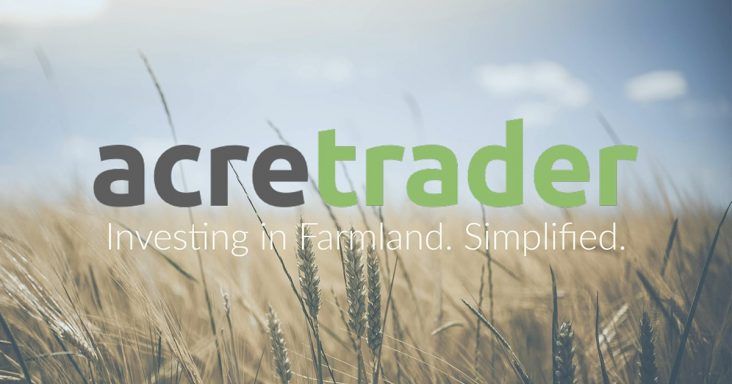AcreTrader applies for broker-dealer license
by February 2, 2023 8:00 am 1,678 views

In a move that would allow it to work more closely with farmers, Fayetteville land brokerage AcreTrader has applied to obtain a securities broker-dealer license.
Company leaders Carter Malloy (CEO) and Garrett McClintock (COO) discussed the news Wednesday (Feb. 1) during the company’s annual business update webinar.
Broker-dealers buy and sell securities for their accounts or on behalf of customers. Because most brokerages act as agents and principals, the term broker-dealer is used in U.S. securities regulation.
McClintock said having a broker-dealer license will enable AcreTrader to offer an alternative to traditional financing options for its farming partners.
“We also believe the license could help us be better partners when advising farmers on what structures and investments our investors are interested in,” he said. “It should allow us to do more and be better at our jobs.”
The application process is complex and can be lengthy. AcreTrader filed its application with FINRA —the Financial Industry Regulatory Authority — this past spring, and the company is awaiting approval.
AcreTrader’s approximately 45-minute webinar touched on various highlights as the business approaches its fifth anniversary. Using proprietary technology, AcreTrader offers a unique real estate crowdfunding platform. Accredited investors can buy shares of farmland instead of other assets like residential or commercial real estate.
Minimum investments range from $10,000 to $30,000. Investments generate returns in two ways: appreciation over time plus potential income from agricultural production or timber harvest on the land. When available, annual income is distributed to investors in each property proportionally to their ownership percentage, while appreciation is typically captured upon the asset’s exit or sale.

AcreTrader researches various farmland parcels across the country — ranging from various types of row crops, orchards and timberland — and even Australia to identify which ones could be most profitable and attractive to investors.
“Just as diversification of assets is key in an investment portfolio, diversification in an asset like land can help spread risk and boost returns,” Malloy said. “We strive to offer our investors plenty of opportunity to do that.”
AcreTrader chooses less than 5% of the parcels it reviews. Selected properties are placed in a separate legal entity from AcreTrader, like an LLC, in which investors buy shares. The legal entity owns the land. By extension, investors own the land.
Malloy, an Arkansas native and University of Arkansas graduate with a degree in physics, is the founder.
“We believe buying and selling land should be common, transparent and easy for farmers, investors, landowners and everyone interested in land,” he said. “A well-functioning market means better outcomes for farmers we work with, for the investors and diversification of their portfolios, and for the rural communities where much of this investment goes. And frankly, where we come from.”
Malloy said AcreTrader, since its founding, had made more than 8,500 distributions to investors. The company made approximately 6,200 of those last year.
“Over 90% of active investment properties generated a distribution last year greater than or equal to what was anticipated by AcreTrader’s internal models,” Malloy said. “This is a good indicator of the historical resiliency of this asset class against some significant economic headwinds.”
AcreTrader has more than 40,000 farmland acres in 18 U.S. states and Australia under management, $311 million in funds raised on its platform and $385 million in total assets under management.
“It excites us that [farmland] investing has caught on among early adopters, and the media has started to pick up on that as well,” Malloy said. “For some context, five years ago, when we started, the term ‘farm land investing’ got around 30 searches a month on Google. Now, we’re seeing features in Barron’s, Wall Street [Journal], Bloomberg and the like. But arguably, it’s still very early here in land and farmland compared with other [investment] assets. Both as an industry and for us as a business.”
McClintock also discussed the growth of Acres, the company’s land analysis tool for desktop and mobile applications. It provides access to comprehensive data for 150 million U.S. parcels, local insights and comparable sales.
While numerous public databases are available, finding and valuing land requires logging into multiple systems, reconciling conflicting data and hours of research to understand basic information about a property.
McClintock said the Acres platform is a key part of the company’s mission to make buying and selling land common, transparent and easy.
AcreTrader announced the Acres launch in October, and it already has nearly 100,000 users registered with an account.
The launch of Acres followed AcreTrader’s $60 million Series B funding round last year and continued growth across the company’s platform.
Malloy said recession rumblings, inflation concerns and other economic factors are part of the company’s 2023 forecast.
“We do not know, and do not pretend that we know, what is actually going to happen in the U.S. economy nor in farmland in the immediate term,” he explained. “But, when we zoom out and look over a long-term period, it’s important to note that there is a long-term trend here that has been established that we can observe.
“Alongside that, there are several supporting fundamentals. As a whole, we are seeing some good fundamentals in the U.S. farm economy.”
AcreTrader has 120 employees and is hiring for various open positions. The jobs are available at this link.
